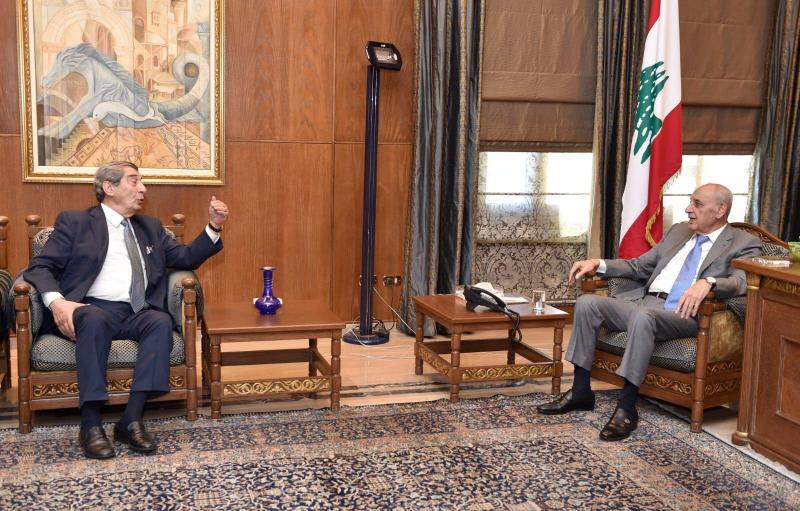Former Deputy Speaker of the Parliament, Elie Al-Ferzali, after meeting with the Speaker of the Parliament, Nabih Berri, in Ain al-Tineh, stated that "when we visit President Berri, we cannot overlook a key issue that he is preoccupied with, which is the election of a President of the Republic. However, we should also not forget that just yesterday, the American envoy who visited Lebanon met with President Berri, and the statements made by Mr. Hochstein expressed a certain joy regarding the stability that must be ensured for investment, whether in the maritime fields or the extent to which this matter is linked to the delineation of land borders." He continued: "This matter is extremely important as it should be the entry point that motivates any President of Lebanon, because ultimately, the issue of dialogue in the country is a key matter contrary to everything said about the election of the president being a voting issue. The matter is not technical because divisions in the country existed during the tenures of presidents and after their absence. The natural entry point for dialogue is the Parliament, as part of the Taif Agreement has transformed the Parliament into a center for ongoing dialogue among Lebanese."
Al-Ferzali added: "If in this circumstance, there are fundamental disagreements on issues of a strategic nature, starting with the resistance's weapon that formed the deterrent equation, through matters of Syrian presence and existence, to the delineation of maritime and land borders, alongside relations with Arab countries, and the need to defend and implement the Taif Agreement rigorously, and the process of not wanting Lebanon to be a hub or passage in the process of national reconciliation and the crafting of national consensus. We should all remember and return to the experience of independence in 1943, that before the victory of the idea of national unity in Lebanon in ‘43, the division in the country was similar to what exists today, with majorities on both sides. Today, we should push matters towards dialogue."
He further stated: "I must express greetings to His Beatitude, who, as a representative of the Patriarchate in Bkirki, nurtures the idea of dialogue and pushes it forward, as well as to all the esteemed MPs who are trying to save the country from the clutches of vacancy and the continuation of this vacancy, and the conspiratorial notion against the idea of Lebanon's unity, land, people, and institutions. Therefore, I believe that President Berri is diligently working to achieve this goal and is on the right path, and that tomorrow will reveal what is ahead."
Speaker Berri also received a delegation from the Syrian Social Nationalist Party, which included party president and former minister Assad Hardan, Samir Rafat, Hanna Nashef, and Dr. George Greg, where they discussed the general situation and recent political developments. The delegation presented President Berri with a book titled "Sanaa Mouheidli - The Icon." After the visit, Hardan stated: "Our visit to the Prime Minister today aims to affirm the correct position that he announced through the initiative for dialogue in Lebanon. We came to say to the Prime Minister that we are in favor of dialogue because it is based on the supreme national interest. Dialogue is the way to enhance national unity and civil peace in Lebanon and to produce constitutional entitlement within a unified position and shared vision among the Lebanese."
He continued: "We spoke about the issue of national unity in the country in light of this division, considering that under the current division, this does not lead to enhancing national unity or civil peace." He noted that "what we hear from confrontational rhetoric reflects division, and what is happening is not a democratic game; this country should apply its constitution in its entirety, from the first line to the last line, including political reforms as stipulated in the constitution, from elections outside sectarian restrictions to a Senate and administrative decentralization, leading to balanced development." He concluded: "We reaffirm that we are for national unity and enhancing dialogue and applying the constitution in its entirety."
Berri also met with the United Nations Resident Coordinator and Humanitarian Coordinator in Lebanon, Imran Riza, who briefed the Speaker on the humanitarian projects supported by the United Nations in Lebanon.




